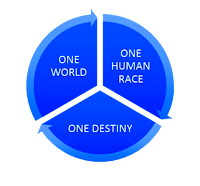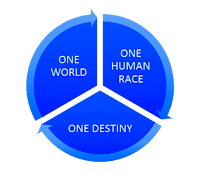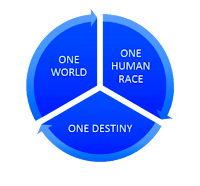THE PARADOX OF PROTEST VOTES - GREECE AND SPAIN
|
|
Choosing the right ally or victim can determine failure or success.
|
F
|
irst we had Greece, where
Syriza loomed larger than life, as it were, with millions of disillusioned
Greeks turning to its strong advocacy of Greece opposing the ultimatum from
Brussels that it surrenders to the demands of the EU, that it adopts austerity
policies, only have its wings singed and 'fall in line' as the months pass.
|
A
|
nd now we have Spain, where the
party of apparent popular protest, Podemos, has done spectacularly well in the
recent Spanish elections, but the triumph of which has not been translated into
helping Spain to move forward. Which has meant that the changes for which the
Spanish electorate voted, will have to, at best be delayed.
|
B
|
oth Syriza and Podemos are new
political parties which appeal to those Greek and Spanish electorate who want
to see change in their countries, and are tired of being dictated to by
Brussels. Like the advocates of Brexit, in Britain, they are fed up with being
led by the nose by the EU and their national elites, and want to be able to
exercise their national autonomy over how they respond to the problems and
challenges they are encountering, instead of having to take the EU prescribed
collective 'austerity strategy.'
|
T
|
he problem is, of course, that,
unless you have a sufficiently large majority of votes in the national
elections, you, as a political party, simply cannot afford to proceed without
making some compromises. Rather than whether or not you have to compromise, it
is more a question of on what you should compromise.
|
E
|
ach political party has its
supporters and is expected to represents their interests. Because some of these
different interests are mutually exclusive or incompatible, it follows that
compromises have to be made. It is at such a time that a political party or its
leaders will plead with its supporters that 'we must prioritise the national
interests' above the sectional or party political ones. Of course, for the
'protest voters' who place their hopes on getting what might be really 'a
political party of convenience', or 'a Trojan horse' into power, waiting for
their demands to be met is oftentimes not really an option. They want immediate
change; in fact, all electorate want immediate changes when they vote a party
into power.
|
P
|
arties such as Syriza and
Podemos cannot deliver on any of their promises unless they become the
government or part of the government. Of course, in the case of Podemos, the
only option which would have been open to it is to have some of its members in
a new government; which, again might have needed it to make some compromised,
as it begins the process of adjusting to being in government, consolidating
power and increasing its appeal.
|
P
|
odemos and Syriza, of course,
are at the added disadvantage that their respective countries are not only
answerable to their national electorate, but also to the Brussels bureaucrats.
|
A
|
nd what is my point? Well, just
this, that it is unfortunate that Podemos and, say the Socialist party in
Spain, could not have come together and make progress in forming a government,
which has given rise to a need for another general election in June. The
electorate is usually rather fickle and unpredictable. Consequently, new
parties, which, initially, at least, will owe some of their relative popular
appeal to their 'radical' and 'protest' perspectives, can easily find
themselves 'beached' as the electoral fish or sea drift off somewhere else, or
resume their repose of indifference to what seems, to them, to be an
unresponsive system of government.
|
E
|
ffective politics and
government remain the art of making tactical and strategic compromises,
when opposition is anticipated or encountered.
Getting to your destination by navigating a crowded pond?
OWOHROD






Comments